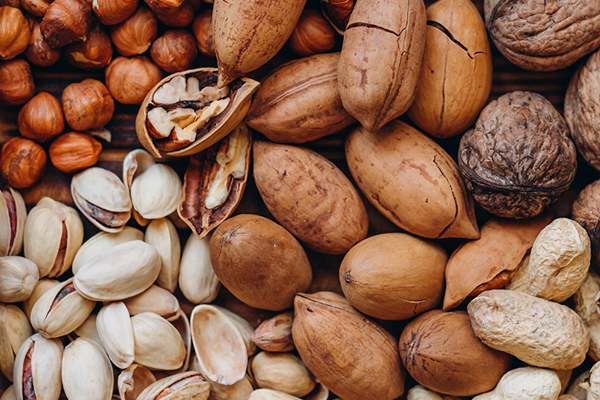Peanut allergies are a life-altering condition that affect an estimated 6.1 million Americans and require preparedness, caution, and diligence on a daily basis. It’s also an incredibly misunderstood condition that requires a significant amount of self-advocacy so that others know how to help you stay safe.
Whether you suffer from a peanut allergy yourself or care for someone who does, it’s important to know the facts surrounding this dangerous food allergy. In this blog, we’ll break down a few of the most common peanut allergy myths we hear every day and give you the facts so that you can keep yourself or your peanut allergic loved ones safe.
MYTH:
“Peanut allergies aren’t that big of a deal.”
FACT:
A peanut allergy is a very real and life-threatening condition diagnosed by doctors. It occurs when the immune system mistakenly identifies the proteins within peanuts as a threat, triggering an immune system response (also known as an allergic reaction). Reactions to peanut allergies are a big deal–they can cause anaphylaxis and even death. Approximately 200,000 people need emergency medical care each year due to accidental ingestion of allergenic foods like peanuts.
MYTH:
“Epinephrine should only be used as a last resort during a suspected allergic reaction.”
FACT:
If you think that you or someone you care for is having an allergic reaction to something they ate, remember this motto – Epi First, Epi Fast. Epinephrine autoinjectors are safe, easy to use and effective. The medical community recommends epinephrine (over antihistamines like Benadryl) at the first sign of a reaction if you believe you have accidentally ingested peanuts. Remember to always seek medical care immediately after administering epinephrine so that medical professionals can monitor your symptoms and prevent further severe reactions. It’s best to be prepared, so make sure to ask your healthcare provider to teach you how to administer your epinephrine autoinjector in case of emergency.
MYTH:
“Peanuts should not be introduced into a child’s diet until they are at least three years old.”
FACT:
This used to be the recommended course of action, but the American Academy of Pediatrics (AAP) now recommends early peanut introduction for the majority of infants (with the exception those diagnosed as high risk for food allergies) at around 6 months of age. The reason for the updated guidelines? A comprehensive research study indicated that introducing peanuts to infants between 4-11 months may prevent the development of a peanut allergy. As with any new food, follow the advice of your pediatrician and use caution when introducing peanuts into your child’s diet.
MYTH:
“Eating foods cooked in peanut oil will cause a reaction in people allergic to peanuts.”
FACT:
According to the American College of Allergy, Asthma, & Immunology, “Many individuals with an allergy to peanuts can safely consume foods made with highly refined peanut oil, which has been purified, refined, bleached and deodorized to remove the peanut protein from the oil.” Avoid unrefined peanut oil, which contains the peanut protein allergen. Look for words like extruded, cold-pressed, aromatic, gourmet, expelled, or expeller-pressed to spot unrefined oil. As always, safety comes first so the best way to determine whether you can safely consume peanut oil is by talking to your doctor.
MYTH:
“People with a peanut allergy will experience an anaphylactic reaction from being near or touching peanuts.”
FACT:
This is a common misconception. In fact, the National Peanut Board conducted a survey on food allergy awareness and found that 30% of respondents believed that being in the same room where peanuts are served can trigger a reaction. Fortunately, being in the presence of or touching an allergen does not cause life-threatening anaphylaxis. Mild reactions such as localized redness, itching and swelling have been known to occur, so practice reasonable caution and always err on the safe side.
MYTH:
“If an infant has eczema, they will develop a peanut allergy.”
FACT:
Eczema does not cause food allergies, and vice versa, but there is a correlation between the two that warrants caution. Researchers have found that up to 30 percent of people with eczema also have food allergies, so it’s best to consult an allergist prior to new food introduction if your infant has eczema. Your doctor can advise you on what allergenic foods to try or avoid and determine if a medically supervised introduction is required to diagnose or rule out a food allergy.
The Facts About Peanut Allergies
It is important to advocate for yourself and those you care for that suffer from food allergies. Knowing the facts can help you navigate life with a peanut allergy safely and with more confidence.
Have a peanut allergy myth that you’ve always wondered about? Let us know and we’ll help you separate fact from fiction.
About Intrommune Therapeutics
At Intrommune, we are dedicated to improving and protecting the lives of the over 220 million people worldwide who suffer from life-altering food allergies. Our revolutionary oral mucosal immunotherapy (OMIT) treatment platform is a patient-friendly solution that conveniently incorporates allergy immunotherapy into a patient’s established teeth brushing routine. Our lead product, INT301, is in Phase 1 clinical trials for peanut allergy desensitization.
Visit our website to learn more about our mission to develop simple, safe and effective solutions for food allergy sufferers so that they and their loved ones can live without fear.
